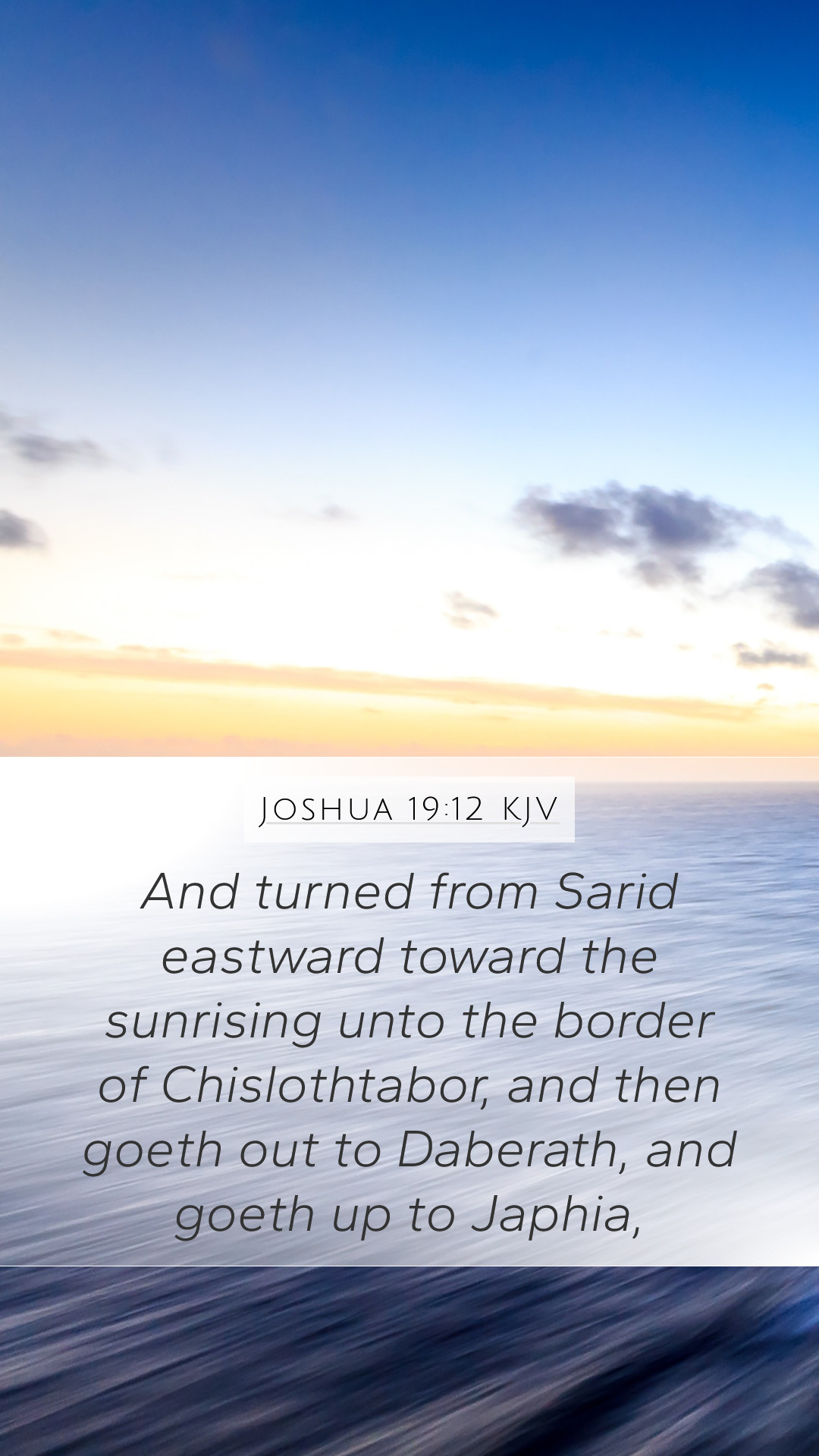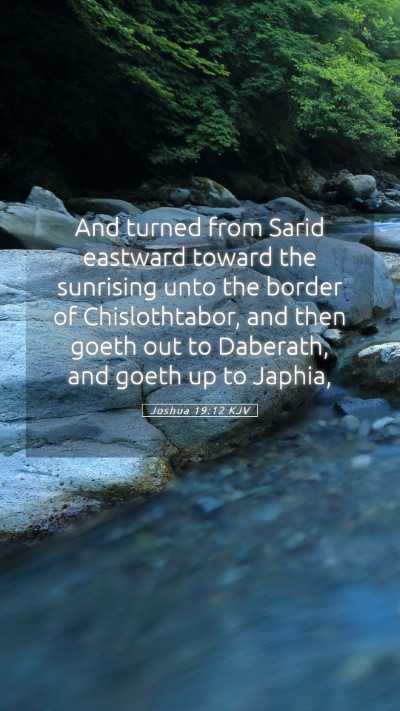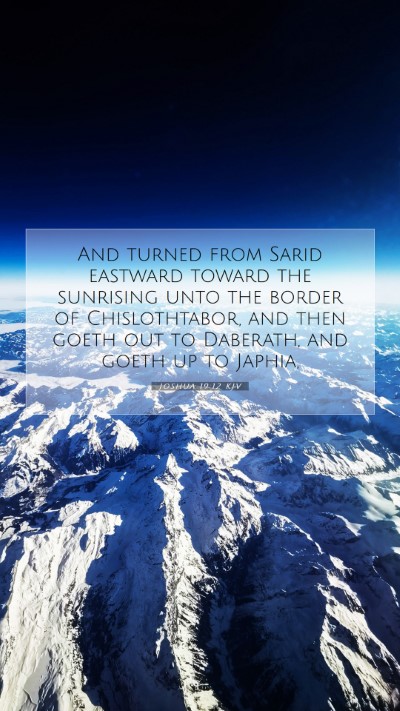Old Testament
Genesis Exodus Leviticus Numbers Deuteronomy Joshua Judges Ruth 1 Samuel 2 Samuel 1 Kings 2 Kings 1 Chronicles 2 Chronicles Ezra Nehemiah Esther Job Psalms Proverbs Ecclesiastes Song of Solomon Isaiah Jeremiah Lamentations Ezekiel Daniel Hosea Joel Amos Obadiah Jonah Micah Nahum Habakkuk Zephaniah Haggai Zechariah MalachiVerse
Joshua 19:1 Joshua 19:2 Joshua 19:3 Joshua 19:4 Joshua 19:5 Joshua 19:6 Joshua 19:7 Joshua 19:8 Joshua 19:9 Joshua 19:10 Joshua 19:11 Joshua 19:12 Joshua 19:13 Joshua 19:14 Joshua 19:15 Joshua 19:16 Joshua 19:17 Joshua 19:18 Joshua 19:19 Joshua 19:20 Joshua 19:21 Joshua 19:22 Joshua 19:23 Joshua 19:24 Joshua 19:25 Joshua 19:26 Joshua 19:27 Joshua 19:28 Joshua 19:29 Joshua 19:30 Joshua 19:31 Joshua 19:32 Joshua 19:33 Joshua 19:34 Joshua 19:35 Joshua 19:36 Joshua 19:37 Joshua 19:38 Joshua 19:39 Joshua 19:40 Joshua 19:41 Joshua 19:42 Joshua 19:43 Joshua 19:44 Joshua 19:45 Joshua 19:46 Joshua 19:47 Joshua 19:48 Joshua 19:49 Joshua 19:50 Joshua 19:51

